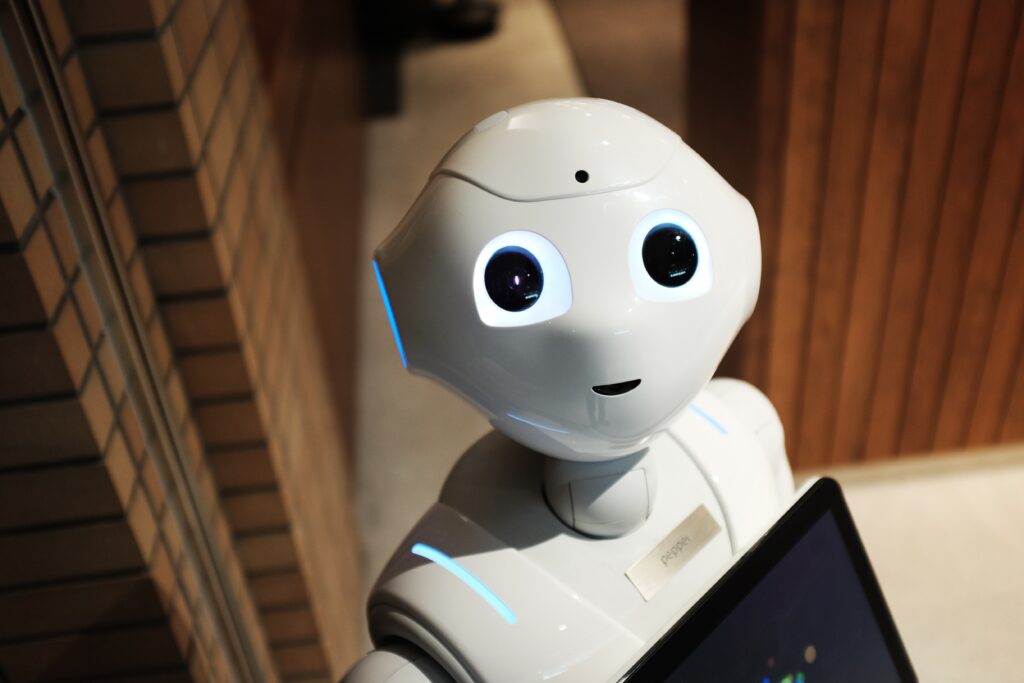So, you’ve decided to invest in a solar generator, but you’re curious about how long it will last? Well, you’re in luck because in this article, we’re going to explore the fascinating world of solar generators and uncover their life expectancy. Whether you’re looking to power your camping trips, backup your home during a blackout, or simply reduce your carbon footprint, knowing the lifespan of your solar generator is essential. So, let’s dive in and discover just how long these sustainable powerhouses can keep on shining!

Understanding Solar Generators
Definition of solar generators
A solar generator is a device that harnesses the power of the sun to generate electricity. It consists of three key components: solar panels, batteries, and an inverter. Solar panels are responsible for converting sunlight into direct current (DC) electricity, which is then stored in the batteries. The inverter, on the other hand, converts the DC electricity stored in the batteries into alternating current (AC) electricity, which can be used to power various electronic devices and appliances.
How solar generators work
Solar generators work by utilizing photovoltaic technology. Photovoltaic (PV) cells within the solar panels contain semiconductor materials that are capable of absorbing photons from sunlight. When photons hit the PV cells, they dislodge electrons, creating an electric current. This electric current is then directed towards the batteries, where it is stored until needed. The inverter ensures that the electricity stored in the batteries is converted into the correct form for use in households or businesses.
Factors Influencing the Lifespan of a Solar Generator
Quality of components
The quality of the components used in a solar generator greatly affects its lifespan. Higher quality solar panels, batteries, and inverters are built to last longer and withstand the demands of regular use. Investing in a solar generator with superior components can significantly extend its life expectancy and ensure optimal performance.
Maintenance practices
Regular maintenance plays a crucial role in increasing the lifespan of a solar generator. Cleaning the solar panels to remove dirt and debris, checking the battery fluid levels, and inspecting the inverter for any signs of damage are a few maintenance practices that should be performed regularly. Neglecting maintenance tasks can lead to decreased efficiency and a shorter lifespan for the generator.
Weather conditions
Solar generators are exposed to various weather conditions throughout their lifespan, including heat, cold, rain, and even extreme weather events. While they are designed to withstand these conditions, prolonged exposure to harsh weather can have a detrimental effect on their components. Proper installation and protection from extreme weather can help prolong the lifespan of a solar generator.
Frequency of use
The frequency of use also impacts the lifespan of a solar generator. Continuous, heavy use may cause the components to wear out more quickly, reducing their overall lifespan. On the other hand, occasional or light use may result in a longer lifespan as the components are subjected to less stress. Striking a balance and using the solar generator within its recommended limits can help maximize its lifespan.
The Lifespan of Key Solar Generator Components
Lifespan of solar panels
Solar panels typically have a lifespan of 25-30 years. However, this can vary depending on the quality of the panels and the environmental conditions they are exposed to. Higher-quality panels made with durable materials and advanced manufacturing techniques tend to last longer. Regular maintenance, such as cleaning and inspection, can also help extend the lifespan of solar panels.
Lifespan of batteries
The lifespan of batteries used in solar generators varies depending on the type and quality of the battery. Generally, lead-acid batteries have a lifespan of 3-5 years, while lithium-ion batteries can last up to 10-15 years. Proper maintenance, such as checking and adjusting the fluid levels in lead-acid batteries or avoiding deep discharges in lithium-ion batteries, can significantly extend their lifespan.
Lifespan of inverter
The lifespan of an inverter typically ranges from 5-15 years. However, this can vary depending on factors such as quality, usage, and maintenance. Higher-quality inverters tend to have a longer lifespan and better reliability. Regular maintenance, such as cleaning and inspection, can help identify any issues and prevent premature failure.
Strategies for Extending the Life of a Solar Generator
Proper installation
Proper installation is crucial for maximizing the lifespan of a solar generator. It is important to ensure that the solar panels are positioned correctly to receive optimal sunlight, the batteries are properly connected and protected from temperature extremes, and the inverter is installed in a well-ventilated area. Following the manufacturer’s guidelines and consulting with professionals can help ensure a proper installation.
Routine maintenance
Regular maintenance is essential for extending the life of a solar generator. This includes cleaning the solar panels to remove dirt and debris that can decrease their efficiency, checking the battery fluid levels, inspecting the inverter for any signs of damage, and tightening any loose connections. Following a maintenance schedule and performing these tasks regularly can help prevent issues and ensure the longevity of the generator.
Protecting the generator from harsh weather
Harsh weather conditions, such as extreme heat, cold, or heavy rain, can impact the performance and lifespan of a solar generator. Taking measures to protect the generator from these conditions, such as installing it in a sheltered area or using protective covers, can help prolong its lifespan. Additionally, regular inspections after severe weather events can help identify and address any potential damage.
Proper storage
If a solar generator is not going to be used for an extended period, proper storage is essential to maintain its lifespan. This includes ensuring the batteries are fully charged, disconnecting the generator from any power sources, and protecting it from dust and moisture. Following the manufacturer’s recommendations for long-term storage can help prevent any damage and keep the generator in optimal condition.

The Average Life Expectancy of Solar Generators
Comparison with traditional generators
Compared to traditional generators that rely on fossil fuels, solar generators generally have a longer life expectancy. Traditional generators often require regular maintenance and refueling, and their lifespan can be affected by factors such as fuel availability and pollution. In contrast, solar generators have fewer moving parts and do not require fuel, making them more reliable and durable in the long run.
Variations in lifespan based on quality and use
The average life expectancy of a solar generator can vary based on the quality of its components and how it is used. High-quality solar generators built with superior components have the potential to last longer than lower-quality options. Similarly, a solar generator used within its recommended limits and properly maintained is more likely to have a longer lifespan than one that is heavily stressed or neglected.
Signs of an Aging Solar Generator
Reduced power output
As a solar generator ages, its power output may decrease over time. This can be due to a variety of factors, including degradation of solar panels, reduced battery capacity, or malfunctioning of the inverter. If you notice a significant drop in power output from your solar generator, it may be a sign that it is reaching the end of its lifespan and may require repairs or replacement.
Physical wear and tear
Physical wear and tear on the components of a solar generator can be a sign of aging. This can include visible damage to the solar panels, corroded battery terminals, or worn-out connections. Regular inspections and maintenance can help identify any physical signs of aging and allow for timely repairs or component replacement.
Frequent breakdowns
As a solar generator nears the end of its lifespan, it may experience more frequent breakdowns and failures. This can be due to the cumulative effect of wear and tear on the components or the deterioration of internal circuitry. If you find yourself needing to repair your solar generator more frequently, it may be an indication that its lifespan is coming to an end.

Selecting a Long-lasting Solar Generator
Understanding the importance of quality
When selecting a solar generator, it is essential to prioritize quality. Investing in a high-quality solar generator with reliable components will not only provide better performance but also increase its lifespan. Look for reputable brands and products that have positive customer reviews and a track record of durability.
Considering the warranties offered
Checking the warranties offered by manufacturers can give you an idea of the expected lifespan of a solar generator. Longer warranties often indicate confidence in the product’s quality and longevity. Pay attention to the warranties for individual components, such as the solar panels, batteries, and inverter, as they may have different lifespans and coverage periods.
Knowing the signs of a durable solar generator
Inspecting the specifications and features of a solar generator can give you an idea of its durability. Look for generators that are built with high-quality materials, have advanced protection mechanisms against weather and electrical surges, and offer robust performance indicators. Additionally, reading customer reviews and seeking recommendations from experts can provide insights into the durability of different models.
Importance of Regular Maintenance
How maintenance extends life expectancy
Regular maintenance not only keeps a solar generator operating efficiently but also extends its lifespan. Cleaning the solar panels removes any dirt or debris that can reduce their effectiveness, minimizing the risk of damage. Checking battery fluid levels and tightening connections prevent premature failure. Regular inspections allow for the early identification of any potential issues or deteriorations, ensuring timely repairs and replacements.
Common maintenance procedures
Common maintenance procedures for a solar generator include cleaning the solar panels, inspecting and cleaning battery terminals, checking and adjusting battery fluid levels, inspecting the inverter for any signs of damage or malfunction, and tightening any loose connections. Following the manufacturer’s recommendations and guidelines for maintenance is important to ensure the effectiveness and longevity of the generator.
When to call a professional
While some maintenance tasks can be performed by the generator owner, certain tasks may require the expertise of a professional. Complicated repairs, component replacements, or troubleshooting electrical issues should be left to certified technicians who have the necessary knowledge and skills. Calling a professional ensures that the solar generator is properly serviced and minimizes the risk of further damage.
The Economic Impact of Solar Generator Lifespan
Cost savings over time
One of the significant benefits of having a solar generator with a long lifespan is the potential for cost savings over time. Solar generators can reduce or eliminate electricity bills, and a longer lifespan allows for a greater return on investment. With lower maintenance and replacement costs, the economic benefits of using a solar generator increase as its lifespan extends.
Impact on renewable energy adoption
The lifespan of solar generators plays a crucial role in the wider adoption of renewable energy sources. If solar generators have a long lifespan, they become a more attractive option for businesses and individuals looking to transition to clean energy. The longer the lifespan, the more sustainable and economically viable solar energy becomes in the long run.
The importance of durability in sustainability
Durability is a key aspect of sustainability in solar generators. By choosing long-lasting and durable solar generators, we reduce the amount of waste generated through frequent replacements. Additionally, the longer the lifespan of a solar generator, the more it contributes to reducing greenhouse gas emissions and dependence on fossil fuels, making it a sustainable choice for powering our homes and businesses.
Conclusion: The Longevity of Solar Generators
Summing up the life expectancy
The life expectancy of a solar generator is influenced by various factors, including the quality of components, maintenance practices, weather conditions, and frequency of use. While individual components have different lifespans, a well-maintained and properly installed solar generator can have an overall lifespan of 20-30 years. Striving to maximize the lifespan of each component through appropriate strategies and regular maintenance is crucial for getting the most out of a solar generator.
Why choosing solar can be a long-term investment
Choosing solar power as an alternative energy source is not only environmentally friendly but also a long-term investment. Solar generators, with their potential for a lifespan of several decades, provide a reliable and sustainable source of electricity. The cost savings achieved over time, reduced dependence on fossil fuels, and positive impact on the environment make solar power a sound long-term investment for individuals and businesses alike.
The future of solar technology
As solar technology continues to advance, the potential for even longer-lasting solar generators increases. Research and development efforts are focused on improving the durability, efficiency, and longevity of solar panels, batteries, and inverters. As these advancements become mainstream, the future of solar technology holds the promise of even more reliable and long-lasting solar generators, leading to further adoption of clean and sustainable energy solutions.




